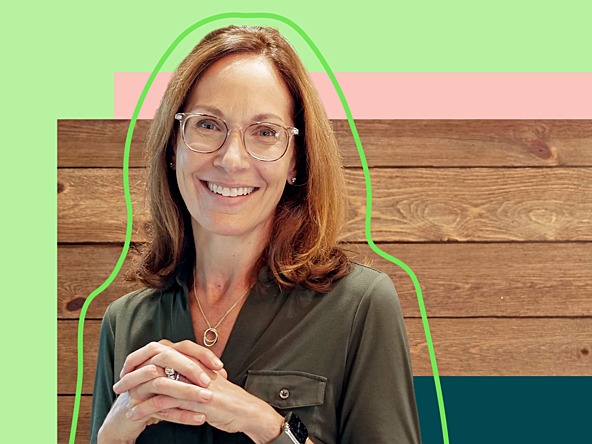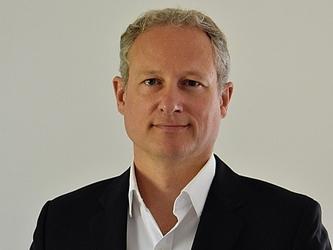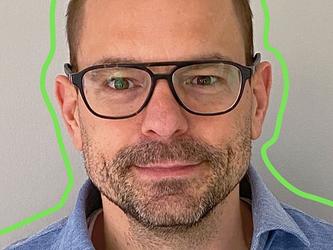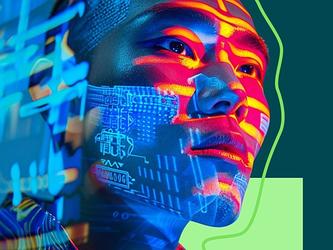Camille Nicita, global CEO, Human8: ‘I am a big believer in potential’

What is your immediate focus as chief executive?
I know the US business very well because that’s where I came from, so my next quest is really immersing in the Europe, Middle East and Africa and Asia-Pacific businesses – getting to know the people and the clients there. In my first 90 days, it’s not reasonable to say that I’ll know it as well as the US market, but I will definitely be getting to know those businesses much more intimately than I do right now. I’m a firm believer that great people doing great work for great clients is the flywheel that we need to make sure we have turning like a well-oiled machine.
The company has been busy buying businesses over the last five years, so we are now the conglomeration of 10 businesses that have been brought together – my goal is to take those and harmonise them all under this Human8 umbrella. Immersing in them is the first step in that.
What about longer-term strategic priorities?
Human8 is a brand that we are leveraging as what we would call a ‘human-driven consultancy’ – what that means is we are going to be able to work with clients on anything from data collection to implementing information within their businesses. That could be similar to a traditional agency, where we’re helping them with marketing campaigns, product development or innovation, but it also means we’re helping them to activate what teams within their businesses need to do to take understanding to action. We see time and time again that one of clients’ biggest barriers is they come up with great human understanding, but trying to get that into play in a way that consumers want is where the fall-down happens.
Insights practitioners are trained to do really great data collection and we need to focus on that to be able to get to the understanding we need, but we’re not always trained to help the [client] teams immerse in it, understand it and figure out how to activate in those internal teams to put it into action. Often, it’s not the insight teams putting it into action – it’s the product developers, innovation team or marketing team, and sometimes they need to come together collectively. So, over the years we’ve hired people from outside the insight world – strategists, designers and human-centred innovation folks – to help with that.
The business has had a substantial focus on acquisitions over the last few years. Is this something you will look to continue?
If the opportunity is right, absolutely, but right now our focus is on harmonising the businesses that we have brought together. It is 10 businesses varying in size, scope and capability. I am a big believer in potential, and I feel like with the businesses that we have now, we are not activating at our full potential.
So, I really want to focus on the people, the capabilities and the clients that we have on our roster, bringing them together in the most meaningful, value-creating way. And when I say ‘value creating’, I’m equally focused on the people inside our business – we want them to have meaning and purpose within our company – as well as value creation for our clients.
How do you plan to focus more on the people side of the business?
We have a people and culture team focused on optimising our employee experience – immersing with people, understanding their needs, and most importantly, not assuming their needs are the same around the world. We are a global business and we will definitely operate with global scale, but with regional or local intimacy, knowing that what people need in the US is going to be different from what they might need in Glasgow or in Hong Kong. We’re also going to be really focused on ESG [environmental, social and governance]. The brands that we work for really care about the environmental impact that we’re making on the broader world, in a way that 10 years ago they didn’t.
What has been the key challenge for the business in the past couple of years?
Integration for our business has been a challenge, just like any business that has acquired businesses – trying to find that common thread that weaves all of you together – but I think we know what that is now, and we will optimise that.
Beyond that, we are also continuously looking to the outside – what is it that clients want and need, what societal factors are impacting the business? Artificial intelligence (AI) might be one example – it’s about thinking of how we will strategically relate to AI in a way that makes our people more efficient but also smarter and better consultants. I think AI has a huge opportunity to help our people maximise the amount of think time they put into client work and be that much more efficient.
The company is headquartered in Belgium. With you based in Detroit in the US, will the global headquarters be changing?
In this day and age, we have physical offices all over the world, but I think of Human8 as a people and not a place. Ghent isn’t even the largest office anymore. We are mostly a remote workforce, so the idea of a HQ sort of isn’t as relevant anymore. We will fully operate as a global business with a similar culture, and there are places we can go to physically meet with one another – that may be offices, at clients’ territory or at conferences.
So, what is the company’s current approach to hybrid working?
We are working hybrid and different places in the world have different ways of working. In the US, right now, there is no actual policy in place – we are mostly a remote business with a physical location and people come in when and if they need to. There is no one firm policy across the world. Again, [we are] staying away from policy and trying to do what is going to create the healthiest work environment for people and for their development and retention long term.
How do you tailor your work with clients in individual markets with specific challenges, as a global business?
Being able to have our people meet clients where they are. Even within the same industry, some clients are more experienced in their insights maturity. We have our people focused on client needs, and then creating an offer from a budget and a needs perspective. That’s really all we can do, because we’re not in it to have a portfolio of products to say ‘here you go, this is what we offer’.
What is the key trend you are observing in the sector?
It’s not new news but I feel like we’re continuing to see that bifurcation between technology and consultancy, so I believe that will continue to affect us. I mentioned AI already – the idea of how to leverage AI in a way that can drive the industry forward, versus paralyse us or have us pulled back. Humans are the most complex beings on the planet. I think the insight industry is at the perfect position to help our clients understand this intricacy.
The other key factor driving the industry is diversity, equity and inclusion. I believe that there’s a lot of movement for us as a sector in getting more diverse talent in. Historically, we don’t necessarily attract the most diverse talent base and to be reflections of an inclusive consumer for our clients, we have to have those people employed in our industry. That inclusive consumer mindset is something we are only just starting to tap the surface of in our industry.

We hope you enjoyed this article.
Research Live is published by MRS.
The Market Research Society (MRS) exists to promote and protect the research sector, showcasing how research delivers impact for businesses and government.
Members of MRS enjoy many benefits including tailoured policy guidance, discounts on training and conferences, and access to member-only content.
For example, there's an archive of winning case studies from over a decade of MRS Awards.
Find out more about the benefits of joining MRS here.














0 Comments